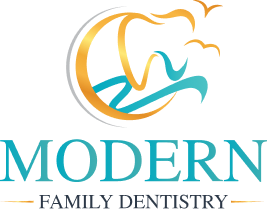
Symptoms To Watch Out For
Toothaches can be excruciating, and at times, it may seem like the only solution is tooth extraction. We understand your discomfort and empathize with your situation. We’re committed to offering swift relief, and there may be alternatives that can preserve your tooth.
Please inform us if you are encountering any of the following symptoms:
- Intense tooth pain.
- Pain that exacerbates with pressure or while chewing.
- Jaw pain or stiffness.
- Swelling in the gums surrounding the affected tooth or teeth.
- Indications of gum disease, such as discoloration, bleeding, or unpleasant odor.
The Treatment Plan
Tooth extraction becomes necessary for various reasons, including but not limited to the removal of baby teeth that struggle to naturally come out, extracting teeth as part of orthodontic treatment, and addressing teeth causing pain or infection.
A dental extraction typically involves a single office visit and is carried out by a dentist. Here’s an overview of the tooth extraction process:
Looking for Solutions
You might believe that extraction is your only solution for relief, or it’s an inevitable outcome, but there are potential alternatives to swiftly alleviate discomfort while also preserving your tooth. Our primary goal is to maintain your oral health, alleviate any pain, and retain your natural tooth whenever possible. Prior to any tooth removal, we will conduct a thorough examination and discuss the available options with you.
The Removal Process
Depending on both the dentist’s and patient’s preferences, a local anesthetic will be administered to numb the specific areas where the tooth extraction is to take place. If necessary, sedation options can also be provided. Our approach to tooth extraction emphasizes minimally invasive techniques, ensuring the gentlest removal possible. Our priority is your comfort and facilitating a swift recovery.
Feeling Better
After the procedure, you’ll receive comprehensive post-operative instructions. These guidelines will cover how to care for your healing mouth, what to anticipate during the recovery process, and steps to take in case of any complications. We are readily available to arrange a follow-up appointment to address any additional questions or concerns you may have. Your well-being is our top priority.
Cost Of A Dental Extraction In Crystal River
The cost of dental extractions can vary significantly. When utilizing a standard insurance plan, a dental extraction typically falls within the range of approximately $100 to $200 or more as an out-of-pocket expense. We are more than happy to provide you with an upfront quote that you can submit to your insurance provider to determine your specific out-of-pocket costs. In the absence of insurance, you can anticipate a cost ranging from around $200 to $600 or more per tooth. The exact cost of a dental extraction depends on several factors.
It’s important to note that no dental practice can provide an accurate quote over the phone because your treatment plan must be customized to your individual needs, which can only be determined after a thorough oral examination. There are two general categories of dental extractions that can give you a rough estimate and rationale for the cost:
- Simple Tooth Extraction: A simple extraction pertains to teeth that are visible in the mouth. These can be performed by a general dentist using local anesthesia. The cost of a simple extraction of an accessible tooth without complications is typically lower.
- Surgical Tooth Extraction: A surgical extraction is a more intricate procedure that involves removing a tooth that is not easily visible or accessible, often due to incomplete eruption or breakage at the gum line. Surgical extractions demand a higher cost due to the additional care, expertise, and consideration required for the procedure.
Contact us today
to schedule an initial consultation & exam.
Your consultation will include an examination of everything from your teeth, gums and soft tissues to the shape and condition of your bite. Generally, we want to see how your whole mouth looks and functions. Before we plan your treatment we want to know everything about the health and aesthetic of your smile, and, most importantly, what you want to achieve so we can help you get there.
Frequently Asked Questions
- Avoid spitting, mouth rinsing, blowing your nose, using a straw, and smoking in the first 24 hours after tooth extraction.
- Don’t touch the extraction site with your finger or tongue.
- Avoid hot foods and drinks.
- Don’t take aspirin because it inhibits blood clotting.
- Avoid physical activities and exercise.

.png)




